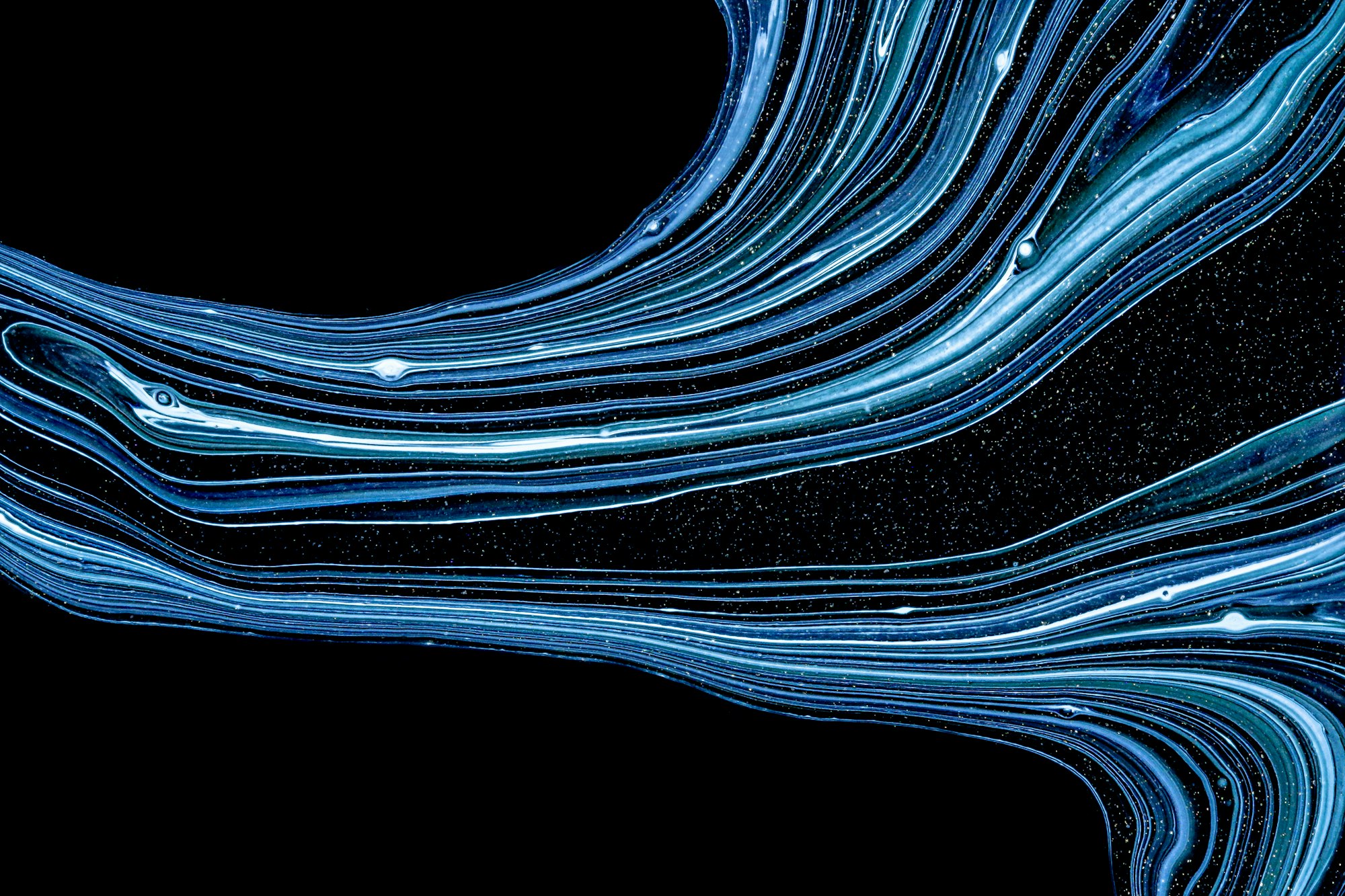HELLAMETAphanipoiesis

Part One of a three-part series on the underlying theories of HELLAMETAMODERNISM
HELLAMETAMODERNISM (HMM) is a view of metamodernism focusing on human experience as an artistic medium, and on the power of shared experience for bringing about change. It has three main theoretical underpinnings:
- Metamodernism in various forms including but not limited to Timotheus Vermeulen & Robin van den Akker's cultural analysis, and Hanzi Freinacht's developmental politics
- Psychomagical art experience as described by Caveat Magister
- Nora Bateson's theory of aphanipoiesis
This essay explores aphanipoiesis as it relates to HMM. Future articles will explore how HMM builds on the other theories.
AphanipoWhatNow?
Aphanipoiesis is a concept recently introduced by Nora Bateson on which HMM depends as its theory of change. This stands in contrast to the cultural critique view of metamodernism, which does not address intentional change, and to the political view, which uses adult developmental theory in its framework for political change. HMM draws attention to the health of our relationships with each other and with society at large. Bateson observes that:
A tiny gesture toward healing implicit, destructive relational habits is much more practical than a hundred attempted explicit action plans that result in caustic erosion of more relational connective tissue. (Bateson, 2021)
She also describes an artistic and playful approach to change that is directly aligned with HMM’s focus on human experience:
Art, play, practice, learning — all of these are natural responses to the need to try out new ways of weaving connective ideas and reweaving them and reweaving them. Placing images, musical notes, ideas, stories, and other forms of open communication side-by-side is an irresistible invitation to start finding new links. The tissues between the gaps hold the implicit premises of the system; they form the most malleable, and perhaps the most challenging realm of systemic change. (Bateson, 2021)
Aphanipoiesis is a concept with a great deal of depth and subtlety, and I highly recommend reading the complete paper as a full exploration is well beyond the scope of this article.
For our purposes, we will focus on this concise explanation of the motivation for aphanipoiesis, as well as its etymology and proposed definitions:
Living systems are a constant combining of multiple forms of communication and interaction between organisms. While it may be possible to point to some of the first order combining and communications in living systems, the second and higher orders of communication remain unseen, inseparable, undefinable, and crucial to the trajectories and aesthetics of ongoing vitality. This process of unseen coalescence could use a name.
Afanis: Greek root meaning obscured, unseen, unnoticed.
Poiesis: Greek root meaning to bring forth, to make.
By bringing together two words from ancient Greek, I propose the word aphanipoiesis as a term for this way in which life forms in unseen ways.
A possible definition of aphanipoiesis could be:
1. (n.) An unseen coalescence toward vitality.
2. (n) A coalescence of experience becoming unseen.
Other grammatical forms could include aphanipoietic (adj.). (Bateson, 2021)
Think of a person or other living system as a stream of experiences. As you have new experiences, they submerge into your experiential stream, disappearing into the currents yet still present. This submergence is what the second definition means by a coalescing into the unseen. Now think about all of the unseen experience-currents interacting over time, beneath any conscious awareness. These interactions can coalesce towards danger (an insidious process) or towards vitality (an aphanipoietic process). It is from these coalescing streams of experience that new insights and behaviors emerge. While "vital" is not necessarily equivalent to "good" in every context, “good” insights and behaviors are more likely to emerge from a healthier, more vital organism, society, or ecology.

Today we are dealing with a great many problems arising from insidious processes within our culture. Bateson notes that direct corrective responses to currently-emerging symptoms often do not solve such problems:
In fact, [these problems] are usually made more dangerous by such responses. A direct corrective to an insidious issue is most often experienced (in human terms) as confusion, rejection, or humiliation. (Bateson, 2021b)
What we would rather encourage would be aphanipoietic processes that unravel the results of the insidious ones, and indeed unravel the insidious processes themselves. But aphanipoiesis involves the unseen. It is a mechanism of change that takes place out of clear sight. You can't go and "do aphanipoiesis." Plunging your hand into the stream disrupts the stream. So how do we engage with this process of change without disrupting its very nature?
An example by way of David Bowie and Nine Inch Nails

In the mid-90s, after releasing the industrial-influenced album Outside, David Bowie paired up with Nine Inch Nails for a tour. Trent Reznor (at the time the only full member of NIN) was dealing (or not dealing) with his still-relatively-newfound fame:
On that tour, I was a mess, quite honestly.... My way of dealing with life was to numb myself with drugs and alcohol, because it made me feel better and more equipped to deal with everything.... I wasn’t fully aware of how bad it was getting, but I knew, in my heart, that I was on an unsustainable, reckless, self-destructive path. (Reznor, 2016)
Here Reznor was clearly dealing with insidious processes: various psychological stresses, plus the stress of touring, plus easy access to whatever substances he might want to use, all coalescing towards self-destruction.
When I met David, he had been through that. And he was content. He was at peace with himself, with an incredible wife, clearly in love. There were a number of times where the two of us were alone, and he said some things that weren’t scolding, but pieces of wisdom that stuck with me: “You know, there is a better way here, and it doesn’t have to end in despair or in death, in the bottom.” (Reznor, 2016)
As you can read in the article, Reznor hit bottom a year later, got his shit together, and eventually:
A few years later, Bowie came through L.A. I’d been sober for a fair amount of time. I wanted to thank him in the way that he helped me. And I reluctantly went backstage, feeling weird and ashamed, like, “Hey, I’m the guy that puked on the rug.” And again, I was met with warmth, and grace, and love. And I started to say, “Hey listen, I’ve been clean for …” I don’t even think I finished the sentence; I got a big hug. And he said, “I knew. I knew you’d do that. I knew you’d come out of that.” I have goosebumps right now just thinking about it. It was another very important moment in my life. (Reznor, 2016)
Regardless of what Bowie said about knowing Reznor would make it, we have to assume he knew quite well that that was not guaranteed. That one bad night with the wrong drugs could easily result in death, or that Reznor could probably muddle on for a long time, just slowly fading.
What's interesting here is that Bowie didn't try to stage an aggressive "intervention." While we can't know his thought process, we can reasonably speculate that he was avoiding things that he knew wouldn't have worked when he was in that sort of state. So instead of pushing harder, he just set these little bits of non-judgemental wisdom out in front of Reznor whenever he had the chance.
And it worked. I'm sure it wasn't the only factor, but for Reznor it was clearly a memorable part of his journey towards recovery. Those submerged moments affected him in ways that weren't immediately clear, but mixed with other factors to re-emerge when he was ready to process them more in a conscious way, facilitating coalescence away from self-destruction and towards vitality.
Preserving possibility by way of complexity
We want to preserve as wide of a range of vital futures as possible because we cannot know the optimal outcome for any complex aspect of a complex living system. We can only predict outcomes (optimal or otherwise) when we constrain the complexity into a drastically reduced form. Or, at least, into a sufficiently reduced form that it will fit some sort of predictive model. This reduction by definition excludes many paths the system could take, and all of the outcomes that might emerge along those paths.
Sometimes this is truly what we want. If I'm having a house built, my goal is a safe, well-constructed house that I can rely on to serve as a home. So I would prefer a society that has constrained itself through laws and regulations regarding what can be sold as building materials, what skills are needed to advertise yourself as a competent builder, and other things that go into building a house. This no doubt closes off some possibilities, but as I'm not able to judge all of the materials and skills myself, I'm happy to accept this trade-off.

In practice, regulations inevitably over-constrain things in order to ensure their desired outcome. So sometimes you can't build your exact ideal house on a lot, even though it wouldn't cause any practical problems, because the regulators didn't anticipate your situation. And sometimes regulations written in very different contexts collide in a pathological way. Most people still prefer to have regulations because we haven't found another system that works better, the restrictions aren't usually too egregious, and having to wonder whether your new house is coalescing towards collapse would be quite unpleasant.
But consider what happens when constraining living systems in other situations. What if Bowie had decided that his goal was to get Reznor into some sort of treatment program as fast as possible and staged a confrontational intervention, with a recovery program picked out and ready to go? Whatever relevant living processes that were going on, insidious or aphanipoietic, would have been disrupted. All of the possibilities inherent in the complexity of Reznor as a person would have been at least temporarily reduced down to "comply or don't comply."
Lots of things could go wrong here. It's always better in these situations if the person who needs help is the one who decides to get it. An intervention could stir up a lot of resentment and defiance, poisoning interpersonal relationships that could have been supportive. A program that is not a good fit could make things worse. A failed program could lead to hopelessness through self-blame.
This doesn't mean that no one should ever stage any sort of intervention! I am not qualified to give such definitive advice, as every situation is unique. Bowie chose what to do based on his own experiences. But if we don't have relevant experiences of our own to draw on, we can think in terms of aphanipoiesis to help ourselves see more alternatives. And really, dropping bits of wisdom here and there is a kind of intervention. It's just a very delicate one prioritizing future possibilities over present certainty.
What does this mean for HELLAMETAMODERNISM?
The point of HMM is to bring attention to human experience as a medium of art and culture, and particularly to the power of shared experience as an avenue for societal change. In this sense, it is narrower than metamodernism as a whole, which looks at all sorts of creative and cultural artifacts. While HMM is more oriented towards change than the purely descriptive cultural critique approach, it is intentionally much less direct and specific than advancing a theory of political change based on adult development.
Aphanipoiesis supports HMM's orientation towards indirect action. It tells us that creating positive shared experiences is a meaningful thing to do, not just for its own sake, but in terms of fostering conditions for positive change. It helps us let go of the need to focus on specific goals and outcomes, and encourages us to think in terms of healthy and vital living systems. It is also a motivation, because for all of its avoidance of overly reductive direct correctives, it does not advise passivity:
To attend to the unseen requires patience, hard work, and seemingly endless searching through infinite lenses. By no means is this exploration a suggestion of “surrender” or “acceptance” in new age terms. On the contrary, this is an invitation to add to the existing studies of living systems those critical characteristics that make it possible for organisms and societies to harbor potential change in unseen ways long before the new policy is adopted or the new limb begins to grow. (Bateson, 2021)
Perhaps not everyone needs this, but I find comfort in aphanipoiesis when I find myself wondering if I'm having any sort of positive effect on the world. Was there a point to that last art project? Will this article (or any of my writing) have any "real" effect? Sometimes we can tell, but often we can't.
So I think of the streams of experience that run through us all, and the larger experiential rivers running through cultures and ecologies. I think of all of the paths those streams might flow through. And I can look at what I've been doing and tell myself: Yes, I'm doing my best to tend to these streams. Somewhere, somewhen, downstream in the future, what I'm doing here and now might be part of emerging positive change. And I may never know. I may never see it. But that doesn't make it any less real.

References
Bateson, N. (2021). Aphanipoiesis. In Journal of the International Society for the Systems Sciences, Proceedings of the 64th Annual Meeting of the ISSS, Virtual (Vol. 1, №1) — under review. https://norabateson.medium.com/aphanipoiesis-96d8aed927bc
Reznor, T. (2016, January 26). Trent Reznor Recalls How David Bowie Helped Him Get Sober. Rolling Stone. https://www.rollingstone.com/music/music-news/trent-reznor-recalls-how-david-bowie-helped-him-get-sober-229659/


